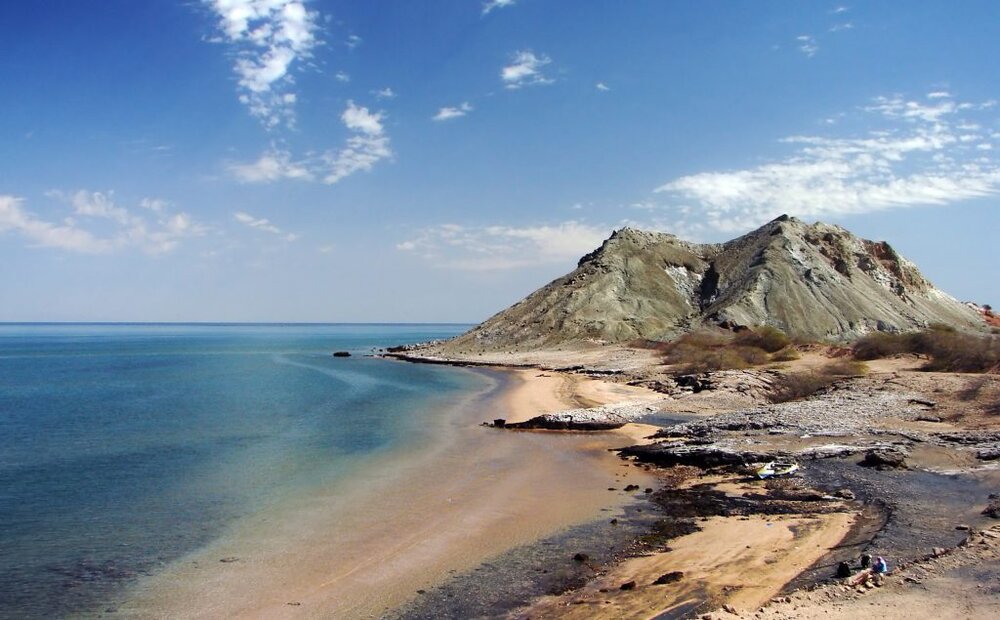Adverse environmental effects may occur as Caspian Sea is shrinking: expert

TEHRAN – Caspian Sea water level is shrinking and, if the trend continues, adverse environmental consequences may occur in the coastal areas of the country, Iran’s Meteorological Organization (IMO) director has warned.
Sahar Taj Bakhsh made the remarks during the 24th meeting of the Coordinating Committee on Hydrometeorology and Pollution Monitoring of the Caspian Sea (CASPCOM) held on Tuesday in Tehran.
The CASPCOM was established in 1994 by the national hydro-meteorological agencies (NMHSs) of the Caspian littoral states (Azerbaijan, Iran, Kazakhstan, Russia, and Turkmenistan) with the support of the World Meteorological Organization (WMO).
CASPCOM was established with a view to coordinating, standardizing, cooperating in and improving in the fields of hydrometeorology and pollution monitoring of the Caspian Sea.
Over the past 5 years, littoral states managed to set up a legal framework for international cooperation in the field of hydrometeorology and pollution monitoring and achieve good results in this regard, she said.
Another important step that we hope to achieve is the adoption of internal rules of the committee, which will pave the way for the committee to pace up the process and involve the Caspian states in the integrated monitoring and forecasting program, she highlighted.
The exchange of meteorological information between the member states has been ongoing for several years and has provided a great deal of joint activities and research between countries, most of which can be assessed as climate change impacts on the Caspian Sea, she noted.
Climate change is already having a significant impact on the temperature, precipitation and water level of the sea, and examining the trends of these changes and how it affects the environment and coastline are important issues that can be pursued by researchers in these countries, she added.
A declining trend is affecting the Caspian Sea water level, and if it continues, adverse environmental effects may be brought up in the coastal areas of the states, she warned, Mehr reported.
Accelerating the preparation, approval, and implementation of the monitoring and forecasting programs can be considered as an important step in identifying the contributing factors to this phenomenon and providing appropriate solutions for national and regional decision-makers, she highlighted.
The Caspian Sea is recognized as an important waterway for trade between littoral states and a major part of meteorological organizations is dedicated to providing services to the maritime transport fleet, she noted, adding, one of the main objectives of the Committee is to improve the quality and quantity of services provided to these vessels.
Oil exploration and extraction activities in various parts of the Caspian Sea have long been in progress, while increased over the recent years, she said, noting, the extensive presence of oil companies in the Caspian Sea and the establishment of extraction and exploration platforms in different parts of the sea increase the industry's need for specialized meteorological services, from monitoring and forecasting sea conditions to conducting studies.
This will require investment in the development of meteorological infrastructure, and oil companies, as a sponsor of the CASPCOM committee's programs, can play an important role in achieving the key objectives, she emphasized.
Considering the high sensitivity of the Caspian Sea to the pollution and low self-purification capacity of the Sea, cooperation with the Convention for the Protection of the Marine Environment of the Caspian Sea, also called Tehran Convention, has been on the Committee's agenda and a Memorandum of Understanding has been signed in this regard, she explained.
Partnerships between the two regional entities will include the provision of meteorological data in environmental assessments as well as joint research on pollutant transfer and its impact, she also added.
She further expressed hope that by achievement of the Committee's goals, important steps will be taken in the field of environmental cooperation and improvement of the precious ecosystem.
The Caspian Sea is the largest enclosed inland body of water on Earth by area. It is bounded by Kazakhstan to the northeast, Russia to the northwest, Azerbaijan to the west, Iran to the south, and Turkmenistan to the southeast. The sea has a surface area of 371,000 square kilometers and a volume of 78,200 cubic kilometers.
FB/MG
Leave a Comment